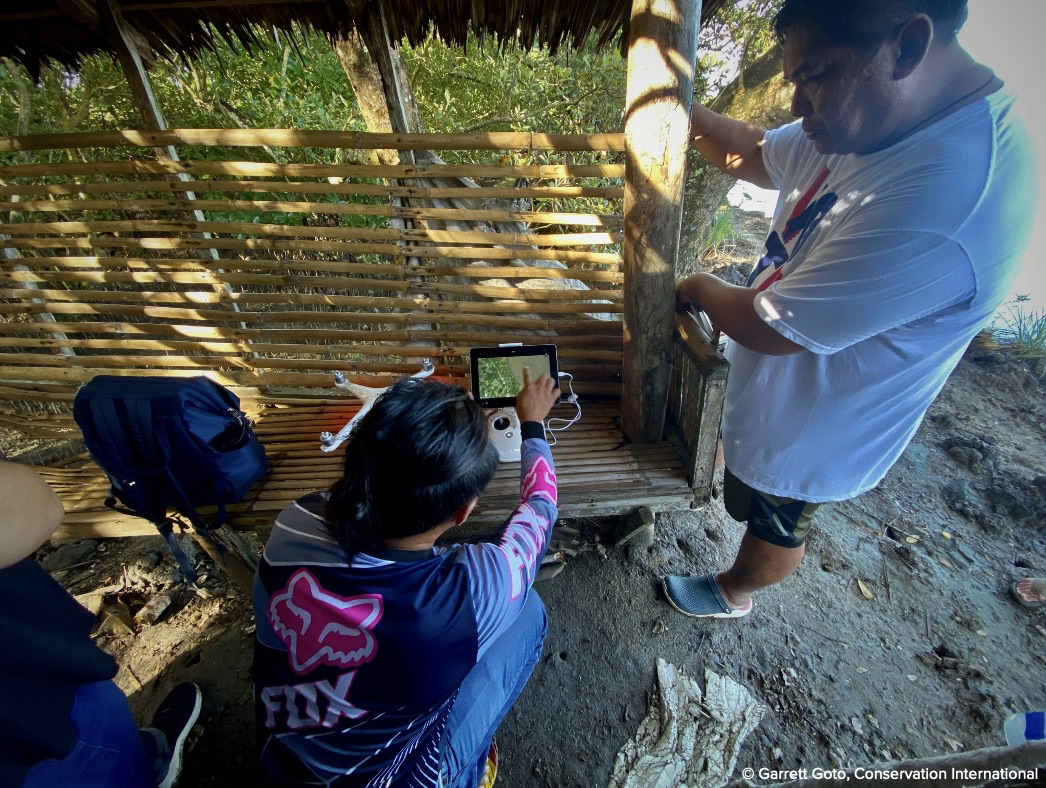ORRAA Action Report 2021
Read about the innovative projects undertaken by ORRAA, in conjunction with its members, in 2021, in our first Action Report.

Project Lead: Conservation International
Supporting Partner: Thinking Machines Data Science, Longline Environment, Tambuyog Development Center Inc.
Financial Support: The UK’s Blue Planet Fund
Location: Philippines
Shrimp aquaculture provides local livelihoods and food security benefits. However, its expansion has often come at the cost of coastal ecosystems. Sustainable intensification provides an alternative that produces more shrimp within a smaller footprint, but many farmers face barriers to make that transition, including access to capital, technology, expertise, and guaranteed markets. ORRAA partner Conservation International is piloting Climate Smart Shrimp to incentivise mangrove restoration while also providing the tools for shrimp farmers to produce more sustainable seafood.
Farmed shrimp production grew globally by more than 10,000 per cent over the last three decades to produce an estimated 6.7 million metric tons of shrimp in 2020, critical to local livelihoods and food security. In the Philippines, approximately 200,000 hectares of mangroves, almost 40 per cent of the historical total, have been damaged or degraded by aquaculture activities (including shrimp farming). Mangroves serve as natural structural barriers, reducing coastal erosion, providing habitat for aquatic and terrestrial species, and dissipating wave energy and storm surges. The 80 per cent of Filipinos who live in coastal municipalities are increasingly vulnerable to typhoons and other coastal hazards, which are likely to increase in intensity and occurrence due to climate change.
Restoring coastal ecosystems, such as mangroves and coastal wetlands, enhances coastal resilience and provides habitat benefits, while also improving water quality by filtering out pollutants and absorbing nutrients. However, restoration at scale requires substantial funding and land available for restoration is limited.
To overcome these challenges, Conservation International (CI) is piloting a novel approach – Climate Smart Shrimp (CSS) – that incentivises mangrove restoration while providing the tools for shrimp farmers to sustainably produce more seafood. By applying this model, shrimp farmers, supply chain companies, and other stakeholders work together to sustainably intensify production on a portion of a farm’s ponds and restore mangroves on the remaining ponds. This results in less damage to the surrounding environment from pond-based shrimp production and builds a resilience buffer, protecting the ponds, communities, and other coastal infrastructure from the impacts of climate change.
To apply CSS in the Philippines, ORRAA supported CI and its partners to create the enabling conditions for the adoption of CSS. In 2022, they conducted pilot site assessments, developed a scaling strategy, began outreach and coordination with key stakeholders, and scoped the role insurance products can play in incentivising adoption of CSS. The project identified 81,415 hectares of existing aquaculture ponds that would be suitable for CSS.
CI and partners also have CSS pilots underway in Indonesia and Ecuador, with grant support from the Caterpillar Foundation, the David and Lucile Packard Foundation, Tony Fadell and Danielle Lambert, the Aquaculture Stewardship Council, and an anonymous donor. The pilots are restoring mangroves on more than 60 hectares, increasing shrimp production, and providing improved livelihoods benefits for upwards of a 100 farm workers.
Pre-emptive, innovative, and scalable adaptation solutions are needed to reduce climate impacts to communities and future generations. This project reverses the paradigm of shrimp aquaculture as an agent of mangrove deforestation and pollution, and instead couples sustainable intensification of shrimp farming with mangrove restoration to provide biodiversity and community climate adaptation benefits. CI and its partners are now looking to develop an initial CSS site in the Philippines and expand pilots in Indonesia and Ecuador. CI is also developing a dedicated loan fund to scale CSS in each country and in other major shrimp producing geographies globally.